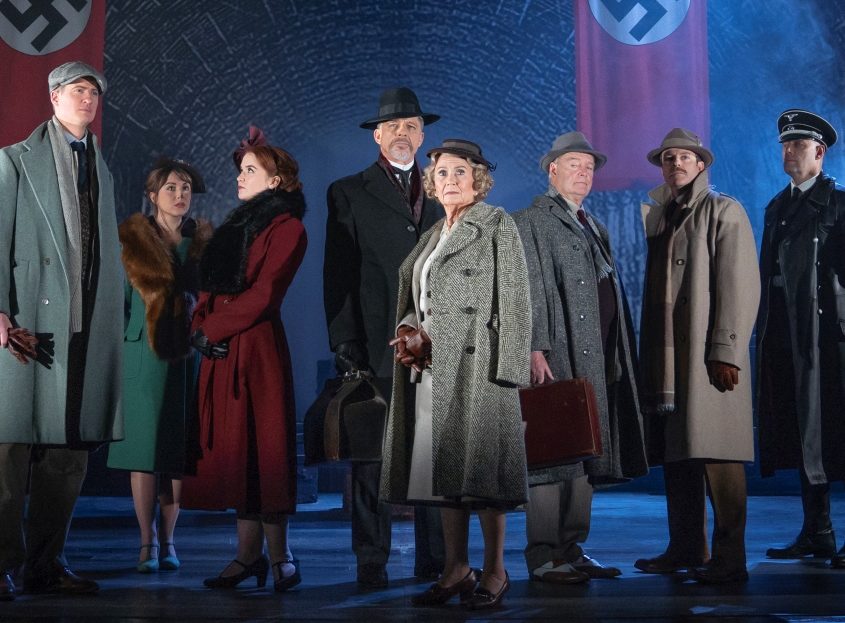
The Classic Thriller Theatre Company does precisely as advertised. They are an old style touring company filling a niche which may have waned over the years with changing tastes, but has never gone away. Where TV thrillers have gone through several changes, as indeed have stage thrillers and ‘whodunnits’, there is still a nostalgic place for plots set in the land of Miss Marple, where porters touch the peaks of their caps (where porters can still be found indeed) where being British is still seen as having won some kind of lottery in life and where old fashioned values can be sighed for or tilted at.
In Hitchcock’s film of an original book he has fun playing with some stereotypes whilst gently pushing at convention. A good example in the play, which follows the film closely at times, is when Iris (Lorna Fitzgerald) says that having ‘done it all’, including taking tea with a bishop, there is little left for a girl but marriage. And then there are two chaps (Ben Nealon and Robert Duncan) of the sort who think the empire was created to get decent international cricket competition and for whom a sense of entitlement is not something assumed, but just is, bred in the bone so to speak.
Translating backwards (from the usual route) from film to stage is always a challenge as the stage director has the problem of making do without the selective and directing eye of the camera. Subtlety gives way to broader strokes, which, as here, nudge towards melodrama. Director Roy Marsden makes the best of the compromise by using the menacing swastika and eagle to decorate the station. The play is thus more clearly set against the background of the Nazi-Soviet pact than the film which leaves it until quite late on, close to the dénouement, to make the revelation of its significance.
With so much frantic action as the plot unwinds, the ‘I love yous’ at the end when Iris and Max (Matt Barber) declare their emotions back in the safety of Blighty, come as a bit of a shocker in themselves as we are unprepared, as in the film, by looks and nudges.
Juliet Mills as the tweedy stalwart who mysteriously vanishes is a worthy example of that particular breed of Englishwomen who, without any form of ostentation, have been providing backbone to the nation for generations.
Designer, Morgan Large, has cleverly produced a set which has both the grandeur of a vaulted station and the intimacy of a railway carriage. The odd wobble aside, it is a classy setting.
The nature of the piece makes it difficult to generate any real tension, but the cast make up for it with some witty cameos. It’s an example of a genre that sets out to do nothing but entertain and that it does with some style. ★★★☆☆ Graham Wyles 29th January 2019

